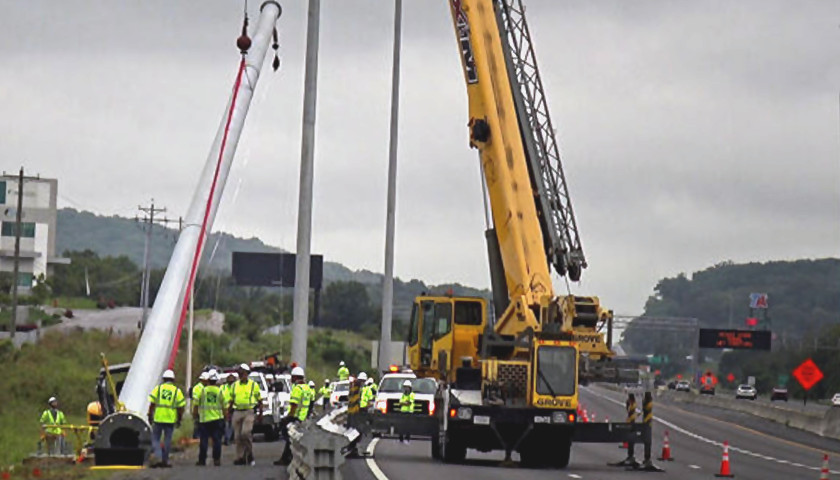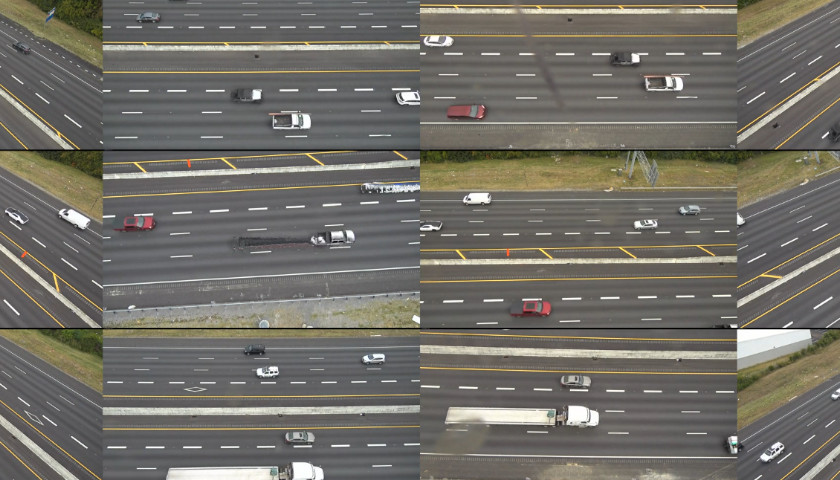Vanderbilt University and the Tennessee Department of Traffic (TDOT) are beginning development of what is being called ‘the smartest roadway in the world.’
The development spans about six miles of Nashville’s Interstate 24 and is dubbed, the I-24 Mobility Technology Interstate Observation Network – I-24 MOTION.
Vanderbilt University associate professor of civil and environmental engineering, leading the technical element of the project, Dan Work, said of the effort, “This research will help make the world’s roadways smarter and safer, with the initial research conducted right here in Tennessee. Beyond the thrill of participating in this never-before-attempted project, we are confident that this work will attract the attention of automakers and contribute to the region’s economy.”
I-24 MOTION consists of 300 ultra HD cameras to anonymously capture details of drivers on the road. Part of the cameras’ instillation had already begun this summer, and the I-24 MOTION team hopes to have the remaining cameras installed and running by summer 2022.
There are six of the cameras installed on steel roadside poles, tall enough so large vehicles won’t block the view for smaller ones. Footage is then transmitted over a fiber optic network for processing off-site. While the footage collects the make and model of the cars driving, the footage does not, however, collect any personal information from those on the road.
The I-24 MOTION website explained that “images are converted into a digital model of how every vehicle behaves with unparalleled detail. This is all done anonymously using Artificial Intelligence (AI) trajectory algorithms developed by Vanderbilt University.”
One of the main purposes behind the I-24 MOTION is to “provide an environment for testing advanced traffic management and automated vehicle technologies in real freeway traffic, testing in traffic captures the variability of real-world conditions and human behavior.”
Brad Freeze, Traffic Operations Division Director of the TDOT, said the “groundbreaking understanding of traffic is more important than ever due to the increasing automation capability of individual vehicles, which are beginning to influence traffic flow through their interactions with conventional vehicles.”
He added, “By unlocking a new understanding of how these vehicles influence traffic, vehicle and infrastructure design can be optimized to reduce traffic concerns in the future to improve safety, air quality, and fuel efficiency.”
Vanderbilt news reported that the first testing of this technology will be conducted by the U.S. Department of Energy and National Science Foundation-sponsored research with the CIRCLES Consortium, which will study the possibility of smoothing traffic by introducing vehicles equipped with advanced driver-assist systems.
– – –
Morgan Nicole Veysey is a reporter for The Tennessee Star and The Star News Network. Follow her on Twitter. Email tips to [email protected].
Photo “I-24 Construction” by Vanderbilt University.









